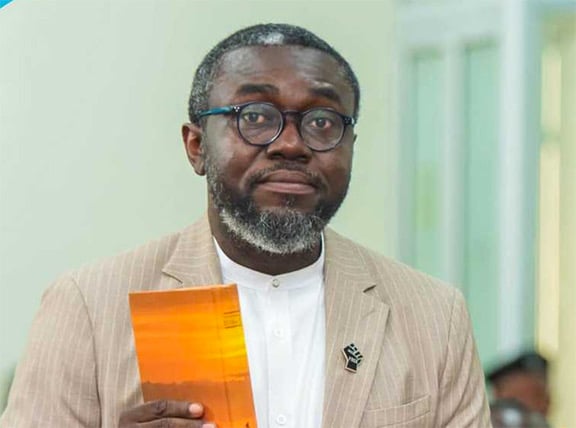Oliver Barker-Vormawor, a prominent Ghanaian social activist and the convener of the Fix the Country Movement, has expressed concerns about the potential political repercussions the National Democratic Congress (NDC) might face due to its perceived inaction on the issue of illegal mining, commonly known as galamsey. He contends that while the government, particularly the Office of the Attorney General, is demonstrating commendable progress in the fight against corruption, its apparent lackluster approach towards galamsey could undermine these efforts and lead to voter dissatisfaction. This perceived disconnect between the government’s anti-corruption drive and its handling of illegal mining presents a significant political risk for the NDC.
Barker-Vormawor highlights the potential for this perceived inaction on galamsey to overshadow the positive contributions of individuals like Dominic Ayine and Justice Sai, who are seen as bringing goodwill to the government. He argues that the mixed messages emanating from the government regarding galamsey, coupled with what he perceives as the Lands Minister’s indecisiveness, could erode public trust and ultimately harm the NDC’s electoral prospects. This criticism underscores the importance of a clear and consistent stance on galamsey, particularly given its devastating environmental and social consequences.
The activist, known for his role in organizing the high-profile anti-galamsey demonstration in 2024, is planning another demonstration – a silent march scheduled for May Day (May 1st). This planned demonstration, dubbed the #SaveOurForests March, aims to reiterate the urgency of addressing the galamsey crisis and remind the government of its importance to the Ghanaian people. This continued activism underscores the public’s growing concern over the issue and the pressure on the government to take decisive action.
The government’s current approach, which involves amending the Environmental Protection (Mining in Forest Reserves) Regulations, 2022 (L.I. 2462), has been met with skepticism. Many, including Barker-Vormawor, view these amendments as insufficient to effectively curb the pervasive galamsey activities. This perceived inadequacy further fuels public discontent and reinforces the call for more robust and comprehensive measures to tackle the problem. The silent march, therefore, serves as a powerful symbol of the public’s demand for tangible results and a more effective response from the government.
The core of Barker-Vormawor’s argument lies in the potential for the government’s perceived inaction on galamsey to negate the positive impact of its anti-corruption efforts. While acknowledging the strides made in tackling corruption, he emphasizes the need for a similarly strong and decisive approach to illegal mining. The failure to address galamsey effectively, he warns, could lead to public disillusionment and ultimately erode the government’s credibility and support. The planned silent march is a testament to his commitment to holding the government accountable and ensuring that the fight against galamsey remains a national priority.
The government’s response to this growing public pressure, particularly in the lead-up to the May Day march, will be crucial. Whether it chooses to acknowledge the concerns raised by activists like Barker-Vormawor and implement more robust measures against galamsey remains to be seen. The outcome of this ongoing struggle between public pressure and government action will undoubtedly have significant political and environmental implications for Ghana. The silent march, therefore, represents not just a protest but a critical juncture in the ongoing fight against illegal mining.














